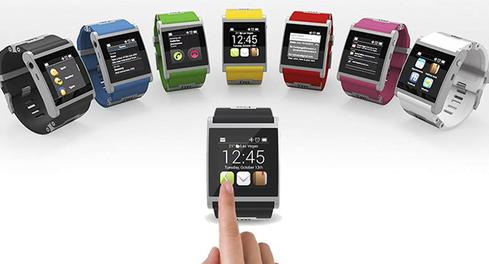Here's how adding another gadget actually might help restore order to our obsessive digital lives.

After the ohhs and ahhs hushed after last week's Apple Watch announcement, one common response stood out: It's a beautiful device, but it's redundant.
Indeed, there's precious little that Apple Watch can do that an iPhone 6 can't, and perhaps Apple is creating a need that isn't there yet. But as the Apple Watch rolls out early next year – and improved Android-based smartwatches soon follow – we may just find a cure for a culture dangerously distracted by smartphones.
Psychological attachment to smartphones is now common enough that it has a clinical name: nomophobia (as in no-mobile-phone phobia). It can result in the inability to focus on work or conversations and near-constant checking for new notifications. WebMD even has a page dedicated to smartphone addiction.
[Apple is entering the wearables market, but current technology only gets the company so far. Read Apple's Next Chapter: 10 Key Issues]
So how is adding another gadget, a smartwatch, to this cycle of addiction going to help? Because the smartwatch is designed as a background device even as it sits openly on one's wrist. If the Apple Watch lives up to the potential Apple bestowed upon it last week, the device won't be a distraction; it'll be quietly looking out for you. It'll take on many of the vibrating alerts that pull us into the smartphone quagmire and reduce them to a quick glance. And as technologies like artificial intelligence and geo-fencing improve so will a smartwatch's ability to send you relevant alerts before you think to check for them based on where you are, what you're doing, and when. Creepy? Yes. Convenient? Oh yeah.
For instance, a Bluetooth-enabled beacon device in a clothing store connecting to your smartwatch could send you alerts for clothing types you've purchased there previously, with a big discount included for opting-in to the store's app. Did someone say discount?? The store's sales rep might even approach you knowing your name and purchase history because of the beacon connection. For some that's creepy, but for others personalized service is a draw.
A smartphone may spend most of its time in your pocket, but when it's out it's really out. Its big screen takes up your foreground with alerts and information from all directions. If used with discipline, a smartphone is a magic box of information. But most of the time it just hijacks your attention and self-control.
We all know how easily a smartphone can distract a person from the moment. Who hasn't turned to the friend you thought you were talking to only to find him gazing into his phone? We've all pulled out a phone to check a football score or the 5-day forecast, and been sidetracked by a silly YouTube video or a Spotify song alert that leads to another song, and then … oh look, an Instagram alert telling me three people liked my photo, let's go there … and … down the smartphone rabbit hole you go.
In short, we do too much on our phones, and we could all benefit from using them less. Smartwatches aren't going to save us from digital distraction, but they can help spread out the workload. For starters, we can move all digital "taps on the shoulder" like calendar alerts, flight reminders, check lists, and wake-up alarms off the phone to the watch so they can be the quick fix they're meant to be. Glance, tap your watch to confirm, move on.
Of course, Apple Watch and other smartwatches will still be distracting. A gentle breeze can be distracting. But at least these distractions will be blink-of-an-eye quick, the alerts and vibrations soft and subtle, your acknowledgement of them instant.
Yes, the iPhone 6 can do everything an Apple Watch can, but our smartphone house is crowded and messy. It's making us crazy.
Offloading essential notifications to a watch will mean fewer opportunities to fall down the smartphone rabbit hole.
And more opportunities to get on with life.
In its ninth year, Interop New York (Sept. 29 to Oct. 3) is the premier event for the Northeast IT market. Strongly represented vertical industries include financial services, government, and education. Join more than 5,000 attendees to learn about IT leadership, cloud, collaboration, infrastructure, mobility, risk management and security, and SDN, as well as explore 125 exhibitors' offerings. Register with Discount Code MPIWK to save $200 off Total Access & Conference Passes.
About the Author(s)
You May Also Like







